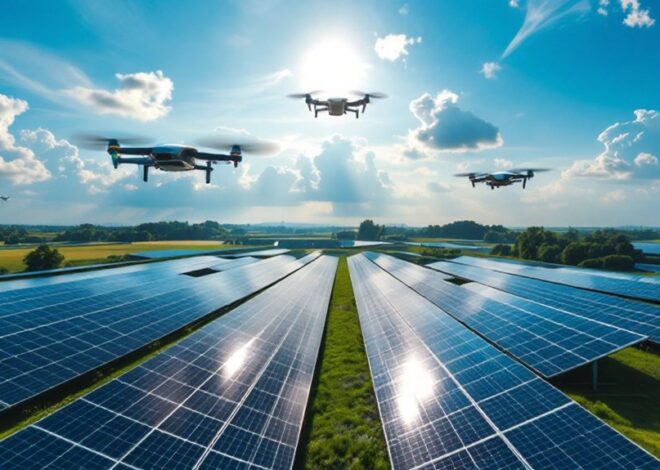
Choosing Solar Energy Solutions: A Comprehensive Guide
Choosing solar energy solutions involves careful consideration of various factors. Individuals must assess their energy consumption and future needs. Understanding the types of systems available is essential. Additionally, financing options can greatly impact the decision-making process. The installation phase requires meticulous planning and compliance with regulations. With potential incentives available, the benefits extend beyond just sustainability. What steps should one take to make an informed choice in this evolving landscape?
Understanding Solar Energy Basics
Solar energy, a renewable resource harnessed from the sun’s rays, serves as a cornerstone for sustainable energy solutions. This energy is captured using various technologies that convert sunlight into usable power. The fundamental principle behind solar energy lies in the photovoltaic effect, where light energy is transformed into electricity through semiconductor materials. Solar energy is not only abundant but also versatile, offering benefits such as reduced greenhouse gas emissions and decreased reliance on fossil fuels. Its potential for energy independence is significant, as it can be harnessed in diverse environments, from urban rooftops to remote rural locations. Furthermore, investments in renewable energy are expected to continue growing, enhancing the viability of solar solutions. Understanding the basic concepts of solar energy is essential for individuals and businesses considering the shift to cleaner energy sources.
Types of Solar Energy Systems
Various types of solar energy systems cater to different energy needs and operational contexts. The most common types include photovoltaic (PV) systems, which convert sunlight directly into electricity, and solar thermal systems, which harness solar energy for heating purposes. Additionally, concentrated solar power (CSP) systems utilize mirrors or lenses to focus sunlight, generating heat that produces electricity. Off-grid systems are designed for remote locations, while grid-tied systems connect to the local utility grid, allowing for energy exchange. Hybrid systems combine solar with other energy sources, enhancing reliability. Each type of system offers distinct advantages and is tailored to specific applications, making it essential for users to evaluate their unique circumstances when selecting the appropriate solar energy solution. Furthermore, adopting sustainable practices can significantly enhance the efficiency and effectiveness of solar energy systems.
Evaluating Your Energy Needs
How can individuals accurately assess their energy requirements when considering solar energy solutions? The first step involves reviewing past electricity bills to determine average monthly consumption. This data provides a baseline for understanding energy usage patterns. Next, individuals should consider their lifestyle and any potential changes, such as increased usage from new appliances or electric vehicles. Conducting a detailed audit of household appliances, including their wattage and operating hours, further clarifies energy needs. Additionally, it’s essential to evaluate seasonal variations in energy consumption, as heating and cooling demands can fluctuate. By compiling this information, individuals can create a thorough picture of their energy requirements, which is vital for selecting an appropriate solar energy system that meets their specific needs effectively. Moreover, understanding work-life balance can help individuals allocate their energy resources more efficiently when implementing solar energy solutions.
Financing Your Solar Energy Solution
Steering through the complexities of financing a solar energy solution can be intimidating for many individuals. Various options are available, including purchasing systems outright, financing through loans, or leasing arrangements. Cash purchases provide immediate ownership and long-term savings but require significant upfront investment. Loans enable buyers to spread costs over time, making solar systems more accessible while still allowing for ownership benefits. Alternatively, leasing allows individuals to enjoy solar energy without the initial costs, though they do not own the system. Incentives such as tax credits, rebates, and renewable energy certificates further enhance affordability. Understanding these financing methods is essential for individuals aiming to make informed decisions that align with their financial circumstances and energy goals. Additionally, AI technology is being utilized in various industries to optimize operations and enhance decision-making processes, making it a valuable resource in the transition to renewable energy solutions.
The Installation Process Explained
Understanding the installation process for solar energy systems is essential for potential users. The installation typically begins with a site assessment, where professionals evaluate the property’s solar potential and energy needs. Following this, a customized system design is created, factoring in the roof type, orientation, and local regulations. Once the design is approved, permits are obtained, and installation can commence. This involves mounting solar panels, setting up inverters, and connecting the system to the electrical grid. After installation, inspections are conducted to guarantee compliance with safety standards. Finally, the system is activated, allowing users to harness solar energy. This meticulous process guarantees peak performance and efficiency, providing confidence to users investing in solar technology. Additionally, integrating mindful practices during installation can enhance overall user experience and satisfaction with the system.
Frequently Asked Questions
How Long Do Solar Panels Typically Last?
The typical lifespan of solar panels ranges from 25 to 30 years. Over time, their efficiency may decline, but many manufacturers offer warranties that guarantee performance for at least 25 years after installation.
Can Solar Energy Systems Work During Cloudy Days?
Solar energy systems can indeed function on cloudy days, although their efficiency may decrease compared to sunny conditions. These systems still capture diffused sunlight, allowing for energy production even under less than ideal weather circumstances.
What Maintenance Do Solar Panels Require?
Solar panels require minimal maintenance, primarily involving regular cleaning to remove dust and debris. Routine inspections guarantee peak performance, while monitoring system efficiency can help identify any potential issues that may arise over time.
Are Solar Panels Recyclable?
Solar panels are indeed recyclable. Many components, such as glass, aluminum, and silicon, can be repurposed. However, recycling processes vary, and advancements in technology continue to improve the efficiency of solar panel recycling efforts.
How Does Solar Energy Impact Property Value?
The impact of solar energy on property value is generally positive. Properties with solar installations often see increased market appeal and higher selling prices, as buyers value reduced energy costs and environmentally friendly features.
Conclusion
To summarize, selecting the right solar energy solution requires careful consideration of various factors, including energy consumption, system types, and financing options. By conducting a thorough evaluation of personal needs and understanding the installation process, individuals can make informed decisions that align with their sustainability goals and budget. With available incentives, embracing solar energy not only contributes to environmental responsibility but also leads to potential long-term savings on energy costs, making it a wise investment for the future.



